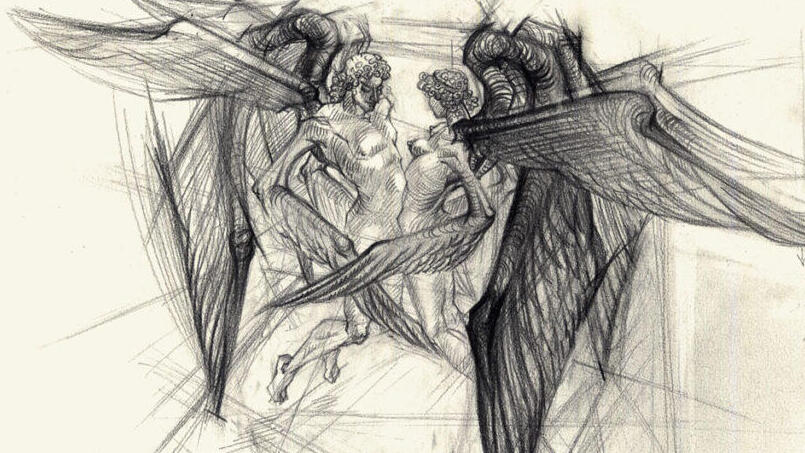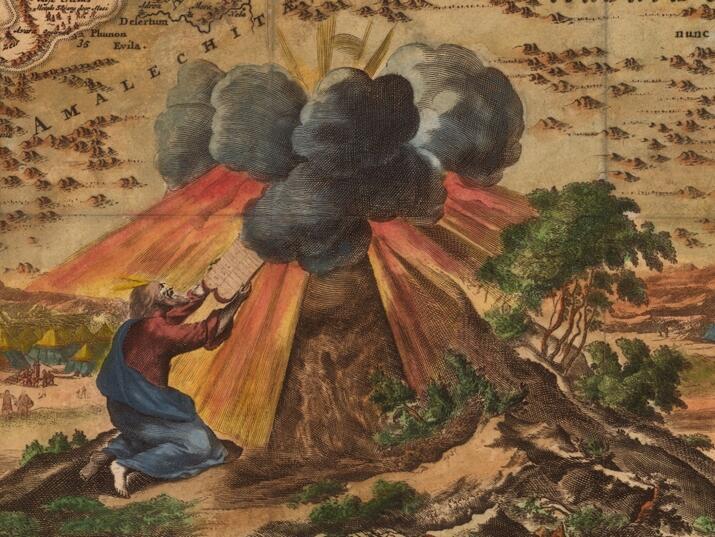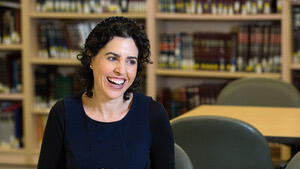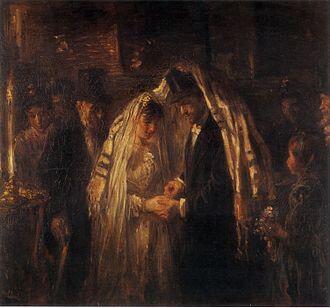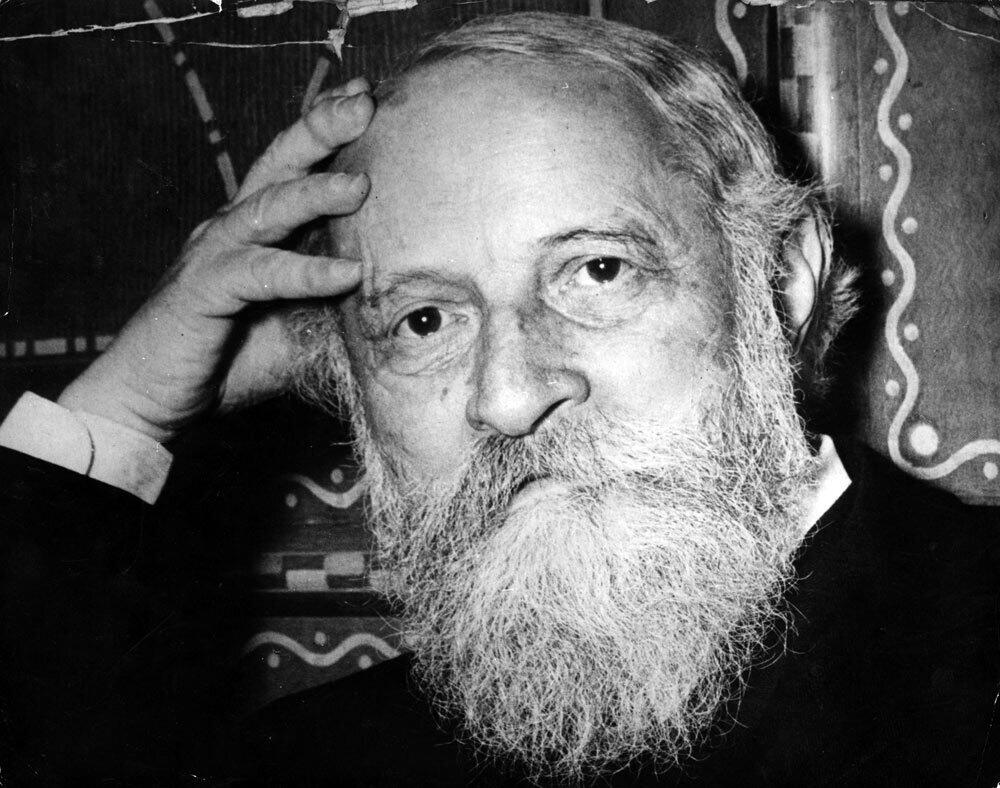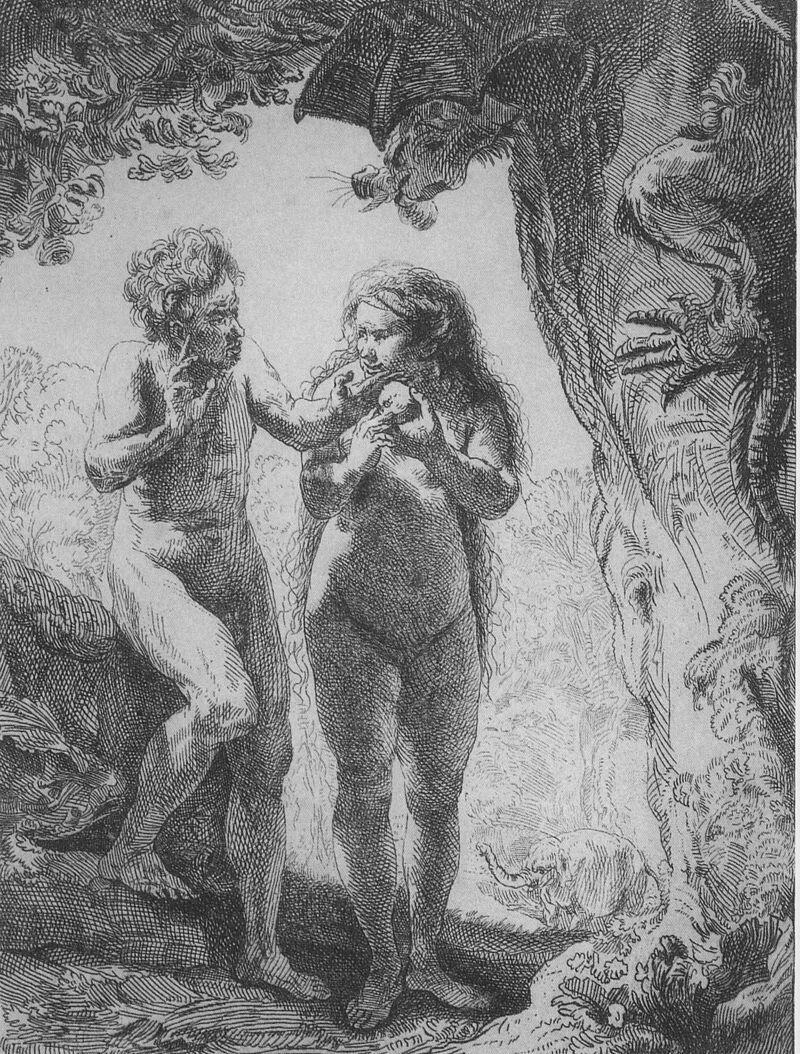Getting your Trinity Audio player ready...
While Christianity perceived the libido as negative and impure, through the ages, Judaism’s approach to sexuality has been more complex.
Orthodox rabba and scholar, Dr. Anat Sharbat, in an unusual research has been tracing sources from the Bible through to the Sages, connecting sex and holiness. “Chazal [an acronym that refers to all Jewish sages of the Mishna, Tosefta and Talmud eras] tried to disassociate themselves from the Christian world,” she explains.
“Whereas Christianity formulated a view in which sexuality is separated from holiness, Chazal took the opposing stance. There was a debate between Judaism and Christianity on the matter.”
Last month, she gave a Zoom lecture series via Beit Avichai, entitled, “The Shekhina Among Them: Sexuality and Holiness in Rabbinic Literature.” In the lecture, she explained that Judaism contains two commandments that regulate sex between a married couple: The first is “Go forth and multiply,” appearing at the beginning of the Book of Genesis. The second is the “Mitzvah of Onah,” obligating the man to have satisfying sex with his wife.
Dr. Sharbat explains that “one is a reproductive commandment, but the other is the commandment to pleasure. As we must give birth, sex is sanctified.”
Dr. Sharbat’s doctoral thesis explores Chazal’s attitude to sexuality. She says that the perceptions of the Sages draw on ancient Jewish understandings of sex. Although rooted in the Bible, this understanding developed in Judaism under Chazal. She made this information available to the public in her lecture.
“The matter is addressed by scholars such as Daniel Boyarin and David Biale, following Michel Foucault’s explanation that sexuality is the cultural interpretation of sex. Boyarin, who penned “Carnal Israel: Reading Sex in Talmudic Culture” said that the Jewish People are a people of the flesh, and not just the spirit.
Based on scholars before me, I contend that Chazal didn’t develop their ideas in a vacuum, but rather within their environment. So, while Chazal were writing what they were writing, further streams were developing in Judaism. Second Temple period sects such as the group at Qumran, then later Early Christianity advocated ascetism. There was an approach that sexuality is the opposite of holy, so if one aspires to elevate oneself in holiness, one must abstain from sex. “
She explains that in the Second Temple period, at the time of the sects, there was an extremist approach to sexuality. “Holiness represents God, and what is close to God and what serves God. This is where holiness is. Sexuality in Early Christianity was detached from holiness. Chazal’s approach was different. I focus on a significant voice within this corpus. Chazal, are consistent in saying that sexuality is part of holiness.”
In Dr Sharbat’s doctoral thesis, supervised by Admiel Kosman and Prof. Chaim Milikowsky at Bar Ilan University, she focuses on three dimensions of holiness in Judaism. She aims to show how sexuality in incorporated into these three dimensions. “In the dimension of time, I examine the holiest time – Shabbat, finding that the time the Sages chose to have sex was on the eve of Shabbat; in the dimension of space, I examine sexuality in the holiest place, the temple; in the third, human, dimension I examine the sexuality of the holiest person, Moses - the exception that proves the rule."
Dr. Sharbat contends that in the dimension of time, the connection between sex and holiness is expressed by Mitzvah Onah. "In hallachic discussions regarding the right time for members of various professions to have sex with their wives, it says that the correct time for sages is on Shabbat. There is a series of stories in the Ketubot Tractate about students who died after remaining in the Beit Midrash on Shabbat rather than returning home to their wives."
As for the dimension of time, she relates a matter addressed in the Yomah Tractate in the Babylonian Talmud regarding the cherubim (golden figures characters human faces and wings in the Mishkan and in Solomon’s temple) described as “engaged in one another.”
Dr. Sharbat says: “The engaged cherubim [a celestial winged being with human, animal, or birdlike characteristics who functions as a throne bearer of the Deity] were positioned over the Ark of the Covenant and in the Holy of Holies, portrayed as a couple having sex. They were the most guarded thing in the Holy of Holies in the temple. When the People of Israel would make the pilgrimage to Jerusalem on the holidays, the curtain covering the ark, the Parochet, would be opened to allow them to see what the high priest saw on Yom Kippur, the holiest day of the year - the cherubim engaged in one another.”
In the human dimension, she says that “Chazal tell us that Moses ‘abstained from the woman,’ following a special order from God, in light of his occupation, rather than as a blanket rule for prophets to abstain. Midrash Sifrei Bamidbar relates that Miriam was vocally critical of her brother for abstaining from his wife after being told by Zippora.”
Miriam says: "We also came from the word of God.’ That is to say that God speaks to us, with me and with Aaron, when we are with our partners – so why does Moses abstain? This is the first time that we encounter a separation of holiness and sexuality, and the Tanach is quick to clarify that it only applies to Moses: ‘With him I speak face to face’, thus applying only to him. It’s just Moses. From this we learn about the norm – that what is required from everyone else, including other prophets, is the very opposite.
"I believe that sexuality is part of holiness, because holiness is to be found inside this world.” God cannot be worshipped without the body, so Judaism doesn’t have monks who abstain from sex. There is no such thing. There are ‘monks’ who abstain from drinking wine or from cutting their hair – but not from sex. We only find that in Christianity.”
The question of sexuality versus holiness is still a vibrant debate within Judaism. The debate was reignited several decades ago in the Haredi world with the injunctions instituted by the late Gur Admor, Rabbi Yisrael Alter, which are reminiscent of the views held by the sects and in Early Christianity.
The storm prompted Rabbi Yaakov Yisrael Kanievsky, known as “The Steipler” (father of the late Rabbi Haim Kanievsky, leader of the Haredi Misnaged, Lithuanian community) to write an essay specifically addressing sexuality in Judaism.
Dr Sharbat continues: “In my thesis, I cite a similar letter attributed to Nahmanides. This debate that’s still ongoing. Jews who are not familiar with rabbinical literature and who read part of my thesis, or who hear me talking about him are somewhat shocked – because the perspectives they bring with them are Christian.”
“Jews who have not studied Chazal and who are not familiar with our sources are influenced by two things: firstly, the Christian world separating holiness and sexuality – complete with its Madonna-Whore pathology, along with its derivatives, and secondly; how hallacha is publicly presented in Israel today, including it’s attitude to women – masquerading as the general hallachic approach.”
She claims that “If what one hears and sees is the “kol isha erva” (“a woman’s voice is nakedness”) prohibition of women singing in public, and the disproportionate emphasis on women’s ‘modesty’ in Israel, what does that do to sexuality? It follows that sexuality is forbidden, that it’s not part of holiness. It’s such a shame.“
If you ask people holding extremist views on sexuality, primarily in the Hassidic community, they’ll still tell you that sexuality must be contained and should only be used for reproductive purposes
“This is where The Steipler, and Chazal sources come into play. The Christian approach is rooted in Original Sin. We don’t have that. Adam and Eve ate from the Tree of Knowledge, went out into the world and that’s it – we move on. God is still in contact with man. We’re not expected to compensate for anything or go back to anywhere, but rather we’re expected to live our lives in the here and now. We have the afterlife, but God is here too. The same god is equally in both places.“
She adds that “Max Weber talked about the Jewish world as a world in which God is within it and beyond, while in Christianity, God is only outside of the world. He describes Judaism as worldly and Christianity as unworldly, requiring a certain detachment from all worldly dimensions as a condition for holiness. Weber is clear about his preference for Judaism because we live in this world and within our bodies. If we sanctify these things, then we can live well and correctly. It’s part of worshiping God. Judaism sanctifies food and the body – and sexuality is part of this.”
She clarifies that in Judaism “It’s not the crude Pagan group sex, but rather sexuality based on a couple in dialogue. The two people in a sexual act must be naked, without hiding behind any kind of covering. It’s a dialogue that comes into play when equality between the couple allows for sexuality. For sex to be fulfilling, one must see one’s partner and give them space. Otherwise, although it may well be reproductive, it will not be pleasurable. Judaism also demands this sexual dialogue, regarding it as holy and sanctifying.“
Delving deeper, she explains that one learns the extent to which the idea of sexuality opposing holiness is at odds with Jewish sources. “Those familiar with the sources, know what The Steipler wrote and are acquainted with the Iggeret ha-Kodesh (The Holy Epistle) attributed to Nahmanides as well as Talmudic sources. Here we find wonderful things regarding sexuality within a relationship."
Rabbi Akiva says: "If a man and a woman are fortunate, the Shekhina is among them.’ If a man and woman are fortunate, within the relationship of a married couple, which includes sexuality – then the Shekhina is present in that relationship."
She further explains that Marin Buber describes the “I and Thou” relationship, which also includes sexuality. He explains that when people suppress and erase their own egos to give space for their partner within the relationship and in the sexual domain – then God is “created” in the space that a man has vacated for his wife or a woman for her husband.
“We also find this in kabbalistic and Hassidic ideas. I believe they’re rooted in Chazal. They’re neither invented nor imported. Prof. Israel Knohl would rightly say that they are to be found in the Bible in the context of the Tree of Knowledge. Knowing good and evil is a divine attribute ('knowing' in the Bible is also a sexual matter). This divine knowledge is then conveyed to the adult human who ate from the tree of knowledge.
“God created Adam and Eve in his own image, male and female who are then commanded to ‘go forth and multiply, further implying that sexuality contains holiness in the Bible. Although most scholars claim that sexuality is portrayed negatively in the Bible, Prof. Knohl correctly explains that these two stories suggest sexuality is positive, something with holiness. This is later seen in Chazal.“
Dr. Sharbat numbers among the few women attaining Orthodox rabbinical ordination by Yeshivat Maharat in the United States. She coordinates the egalitarian communities in Israel at the Hadar Institute. “I served as a rabba at the Hebrew Institute of Riverdale. I came to Israel because I felt Israel needs people like me. I lecture and answer hallachic questions. I like helping people. I find it very fulfilling.”
I’m trying in imagine how radical all this sounds to those not familiar with this content of Judaism
“What is being a Jew? What is it to worship God? The public views these things as binary. The media simplifies the information. If I can’t talk about it or to inspect the sources myself, what I’m left with is very shallow. I want to make this information available. I want people to understand that it’s more complex, that we can find surprisingly positive things in the sources.“
She believes that the content she studies can reveal a hallachic world, allowing men and women to stand equally before God. The more we bring this voice and apply it, the better our world will be. I truly believe that Humanism allows each and every person to find their own worship of God.“
She strongly believes that there should be a dialogue in Israel, greater equality between men and women, both the religious communities and in population in general. She excitedly tells us: “It’s hard to believe, but young people today won’t go to a synagogue without an active female contingent. New communities are developing that accept women as spiritually and religiously equal. Women who are active in everyday spaces are now also beginning to find their place in the holy spaces. This is important to me personally – I have four daughters whose world is one of equals. There’s no good reason for the religious world to classify them differently.


